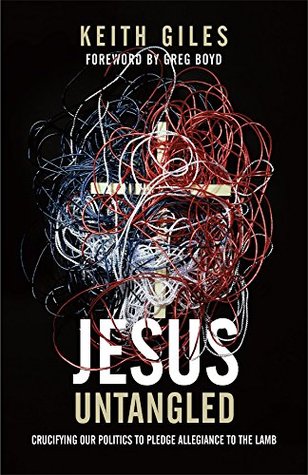More on this book
Community
Kindle Notes & Highlights
Let us not forget that Jesus is a King. As the Messiah, He came to announce the coming of His Kingdom upon the earth. The Gospel of the Kingdom that Jesus preached was about the breaking in of His Kingdom upon our planet. The process has already begun, and for the last two thousand years it has continually progressed to fill the earth.
Part of our submission to Christ as King is to renounce our identity as citizens of this world, and to embrace our new identity as subjects of God’s Kingdom—which is soon to overtake all other kingdoms.
We, like Paul, should resolve to know nothing except Jesus Christ, and Him crucified; and to count all former identities as dung and rubbish, as Paul did when he renounced his Jewish nationalism, his title as a Pharisee, and his tribal heritage saying: “Indeed, I count everything as loss because of the surpassing worth of knowing Christ Jesus my Lord. For his sake I have suffered the loss of all things and count them as rubbish, in order that I may gain Christ and be found in him” (Philippians 3:8-9).
Why is it so important to abandon our nationalism? Because once we identify ourselves as an “us,” we automatically set ourselves apart from “them,” and what follows is an age-old pattern whereby “we” need to gain an advantage over “them”, which leads to strife, struggle, violence, and war.
Such questions ignore a very important detail: Kingship was never God’s plan. It was the demands of the Israelite people for “a king like all the other nations have” that led to the appointment of kings like Saul, and David and Solomon. In truth, this decision broke God’s heart. He saw it as a rejection of Himself as ruler over His people. As God said to the prophet Samuel concerning this, “It is not you they have rejected, but they have rejected me as their king” (1 Samuel 8:7).
If my identity comes from being part of a certain tribe, then I rejoice when other tribes fail. I laugh when those other tribes lose. I cheer when our tribe wins. I demonize people from that other tribe as being stupid, hateful, or evil. That makes my tribe seem better and their tribe seem worse.
Simply put, if we ever hope to love our neighbors, we have to be able to step outside of our tribe and see beyond our traditional group identity. In the Body of Christ, there shouldn’t be any tribes at all.
Only a die-hard Republican can mock a Democrat. Only a true liberal can dishonor a conservative. Only a passionate Lutheran can turn a Methodist into his scapegoat. Only a patriotic American can insult a Mexican. But a Christian—a person who is filled with the agape love of Jesus and transformed by His indwelling presence—cannot do any of those things.
Tribalism separates us. Denominationalism divides us. Politics split us into opposing factions. But Christ came to bring us together. He has given to us the ministry of reconciliation.
Simply put, nationalism is idolatry. It is a denial of Christ and His Kingdom which has come, is now advancing, and will one day overtake the kingdoms of this earth—including the nation into which we were born, and to which we were taught to pledge allegiance.


